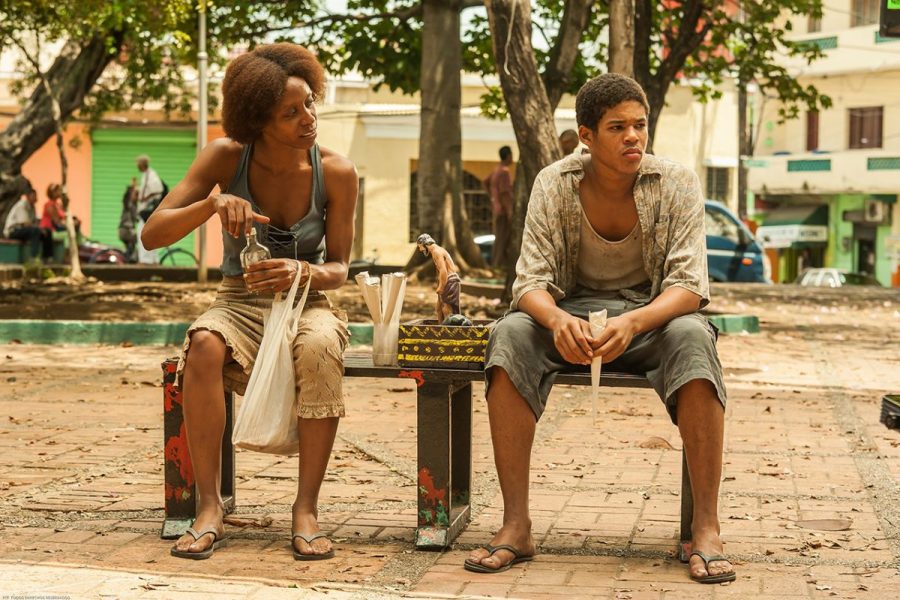@Edinburgh Filmhouse, Sun 9 Oct 2016, as part of Edinburgh Spanish Film Festival
What to make of this one? Catalan filmmaker Agusti Villaronga, self-proclaimed purveyor of ‘dirty realism,’ presents a Dante-esque vision of a bleakly hellish Cuba. In a film stuffed like a Piñata full of melodramatic excess, breakneck tonal shifts and Picaresque plot meanderings, Villaronga clubs at his beleaguered characters like a frenzied child at a birthday party.
Reynaldo (Mayko David Tortolo), is a young escapee from prison, trying to improve his lot in the decaying streets of Havana. Cocky, rakishly amoral, and opportunistically pan-sexual, Rey is a character straight from a morality play scripted by Brecht and illustrated by Hogarth. Taking any dodgy job offered, and there’s no shortage on offer in the Havana slums, Rey flip-flops between the affections of former neighbour Magda (Yolanka Ariosa), and transsexual Yunisleidi (Héctor Medina). Despite their best efforts, all three discover that the squalor of Havana is a black hole that lets no light escape.
The King of Havana, with its waspishly ironic title, is bracing fare by anyone’s definition. Despite being able to empathise with the desperate circumstances the protagonists find themselves in, they remain difficult to root for. It is as much their own shortcomings as their situations that suck them into the morass. Tortolo plays Rey as a charmless thug, prone to childish petulance and casual violence, and his tempestuous relationship with Magda becomes grindingly mutually abusive.
Medina is the stand-out as the ultimately tragic Yunisleidi. This follows up the promise shown by his lead role as an aspiring drag queen in Paddy Breathnach’s Viva, also set in Havana and sharing a similar aesthetic sensibility. Breathnach’s film is a more uplifting tale than Villaronga’s, depicting a certain tatty splendour as well as squalor. However, Medina is carving out an eye-catching career playing bruised and fragile, yet defiant characters.
There are moments of humour, as bitter as it occasionally is. There is a particularly good extended gag about everyone’s failure to recognise the value of a stolen Picasso. But, for every gag there is an abrupt and gut-punching plunge into nihilism a split-second away. This makes the film a jarring and disorientating experience, and undermines the plight of the characters; as it becomes apparent they’re doomed to be the victims of a grand cosmic joke.
As flawed as it it however, there is much to admire in the lengths Villaronga is willing to go. There is no indignity he’s afraid to foist on Rey and his cohorts, with the ending particularly leaving a sour taste. As such, it’s difficult to recommend whole-heartedly. There is also a little too much melodrama for his claim to ‘dirty realism’ to be accurate. However, this is fearless filmmaking; confident enough in its own vision to make no allowances for mainstream tastes, or perhaps any audience at all. In this, it should be applauded.
